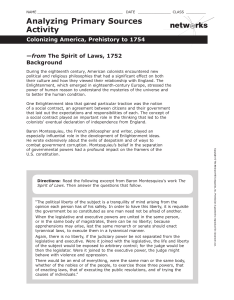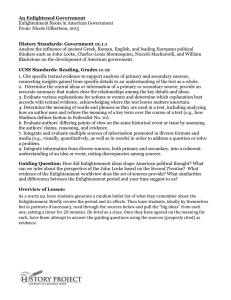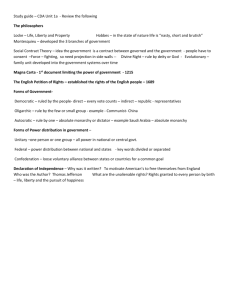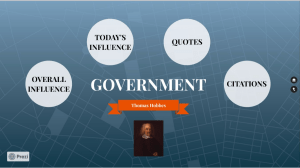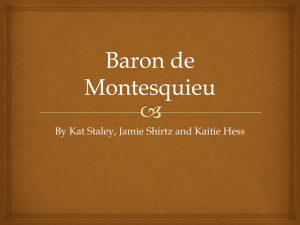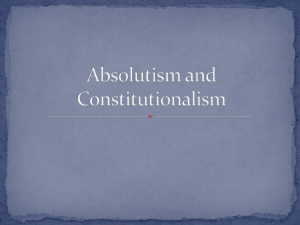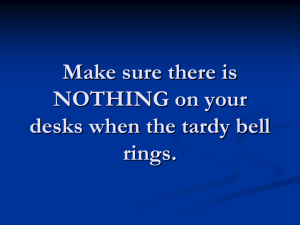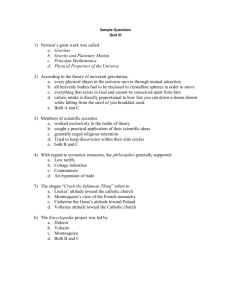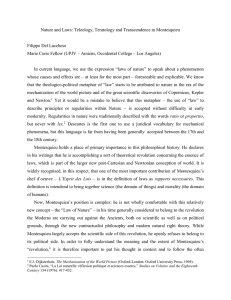Activity 10. Montesquieu: The Spirit of the Laws (1748) Source: Background:
advertisement
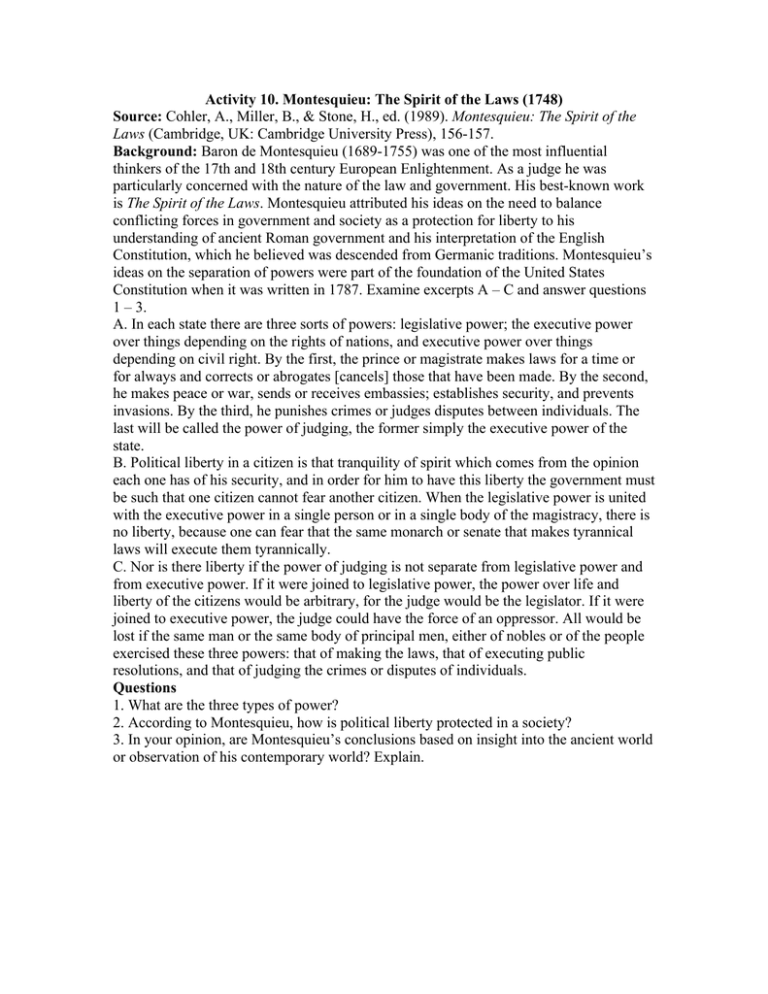
Activity 10. Montesquieu: The Spirit of the Laws (1748) Source: Cohler, A., Miller, B., & Stone, H., ed. (1989). Montesquieu: The Spirit of the Laws (Cambridge, UK: Cambridge University Press), 156-157. Background: Baron de Montesquieu (1689-1755) was one of the most influential thinkers of the 17th and 18th century European Enlightenment. As a judge he was particularly concerned with the nature of the law and government. His best-known work is The Spirit of the Laws. Montesquieu attributed his ideas on the need to balance conflicting forces in government and society as a protection for liberty to his understanding of ancient Roman government and his interpretation of the English Constitution, which he believed was descended from Germanic traditions. Montesquieu’s ideas on the separation of powers were part of the foundation of the United States Constitution when it was written in 1787. Examine excerpts A – C and answer questions 1 – 3. A. In each state there are three sorts of powers: legislative power; the executive power over things depending on the rights of nations, and executive power over things depending on civil right. By the first, the prince or magistrate makes laws for a time or for always and corrects or abrogates [cancels] those that have been made. By the second, he makes peace or war, sends or receives embassies; establishes security, and prevents invasions. By the third, he punishes crimes or judges disputes between individuals. The last will be called the power of judging, the former simply the executive power of the state. B. Political liberty in a citizen is that tranquility of spirit which comes from the opinion each one has of his security, and in order for him to have this liberty the government must be such that one citizen cannot fear another citizen. When the legislative power is united with the executive power in a single person or in a single body of the magistracy, there is no liberty, because one can fear that the same monarch or senate that makes tyrannical laws will execute them tyrannically. C. Nor is there liberty if the power of judging is not separate from legislative power and from executive power. If it were joined to legislative power, the power over life and liberty of the citizens would be arbitrary, for the judge would be the legislator. If it were joined to executive power, the judge could have the force of an oppressor. All would be lost if the same man or the same body of principal men, either of nobles or of the people exercised these three powers: that of making the laws, that of executing public resolutions, and that of judging the crimes or disputes of individuals. Questions 1. What are the three types of power? 2. According to Montesquieu, how is political liberty protected in a society? 3. In your opinion, are Montesquieu’s conclusions based on insight into the ancient world or observation of his contemporary world? Explain.
